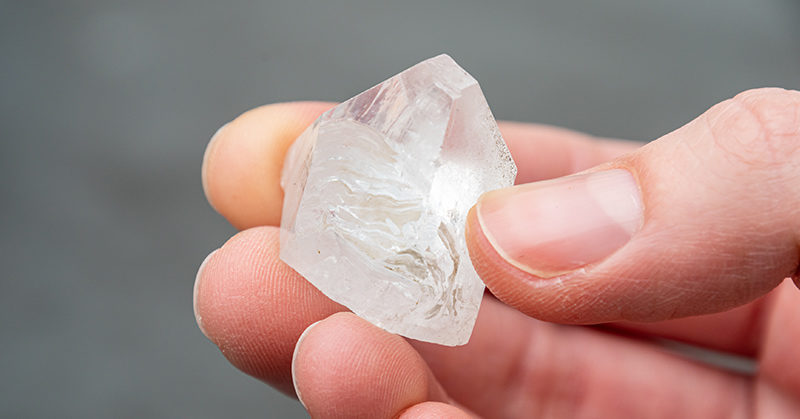Finders keepers, losers weepers, right? Wrong. While that may have worked on the playground as a kid, the IRS has different rules. A man who found a nine-carat diamond in a public state park in Arkansas learned this the hard way.
IRS Taxes Man on Found Diamond
This past labor day, 33-year-old Kevin Kinard found a 9.07-carat diamond in the Crater of Diamonds State Park in Arkansas. This is the second-largest diamond ever found in park history. (1)
“It kind of looked interesting and shiny, so I put it in my bag and kept searching,” he recalled. “I just thought it might’ve been glass.” (2)
He didn’t realize how valuable his find was until he took it to the park’s Diamond Discovery center at the end of his visit. Though it has yet to be officially appraised, based on diamonds of similar size Kinard stands to make a pretty $30,000. (2)
According to park rules, if you find it, you get to keep it. His excitement was quickly dampened, however, when the IRS found him. (1)
According to the IRS, any money or valuable items that you find can and will be taxed as income. Even items that you stumble across, like Kinard’s diamond, are taxable, even if you never sell it for cash. (1)
The IRS calls these found items “treasure trove” and says that you must have it valued and declare it as income. Even if you just find a wad of cash on the sidewalk, it still counts. Many people are forced to sell the item just so they can afford the taxes. (1)
Read: Woman Buys Ring For $13, Finds Out It’s Actually Worth $957K
You Can’t Just Give it Away
Say you win money in a lottery. Even if you immediately donate that money to a charitable organization, you still won’t avoid the IRS. When it comes around to tax time, you can only claim charitable donations up to 50% of your “contribution base”. Typically this is your adjusted gross income. (1)
For donations to private non-operating foundations, you can only claim up to 30%. This includes veterans organizations, fraternities, and non-profit cemeteries. You have five years to use excess charitable contribution deductions, but you have to pay taxes on money that you’ve given away that entire time. (1)
The only way to avoid taxes, in this case, is to decline the prize entirely. Once it’s in your hands, you’re at the mercy of the IRS. (1)
Stolen Property
The only real way to avoid taxes is if you recover stolen property and you can prove that it is yours. This changes, however, if you claimed that item when it was originally stolen, however, you will then be taxed under the “tax benefit rule”. (1)
Now that it has been returned to you, the value of that item that was claimed under theft or loss of property must then be included as income when you do your taxes. If the value of that item has increased since it was stolen, you will be taxed on the new, higher value. (1)
The Bottom Line
Like it or not, taxes are a part of life. Though paying them on something that you didn’t even mean to find is a tough concept to grasp, finding a diamond like the one Kinard did is still very exciting. Hopefully, he will still have some money left over from the IRS to enjoy.

